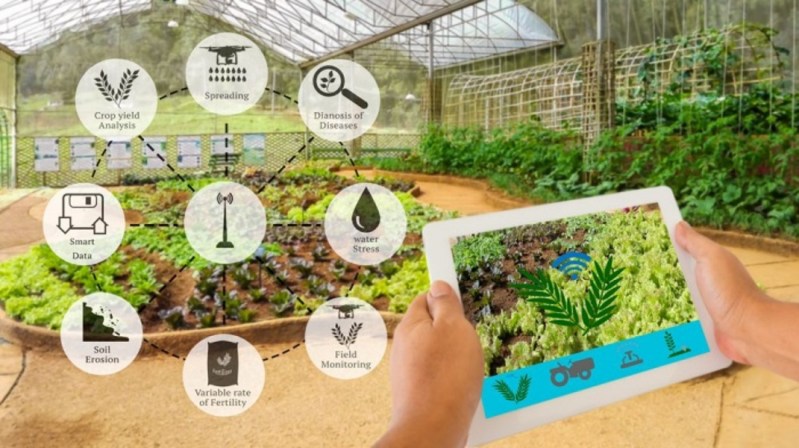One of the hardest aspects of choosing a career isn’t getting started, it’s keeping up. Whether you’re an engineer, doctor, or even landscaper, there are always new developments to keep up with if you want to stay competitive. This is especially true of farming, where farmers have to keep up with an incredible amount of “best practices” in order to continue being profitable. Keeping up with soil nutrient requirements, changing weather and climate patterns, pests and other diseases, and even equipment maintenance can be a huge hassle.
A new project at Hackerfarm led by [Akiba] is hoping to take at least one of those items off of farmers’ busy schedules, though. Their goal is to help farmers better understand the changing technological landscape and make use of technology without having to wade through all the details of every single microcontroller option that’s available, for example. Hackerfarm is actually a small farm themselves, so they have first-hand knowledge when it comes to tending a plot of land, and [Bunnie Huang] recently did a residency at the farm as well.
The project strives to be a community for helping farmers make the most out of their land, so if you run a small farm or even have a passing interest in gardening, there may be some useful tools available for you. If you have a big enough farm, you might even want to try out an advanced project like an autonomous tractor.
















A subject near and dear to the recesses of my dark heart.
If you want to do engineering for agriculture, you are looking at the ‘monoculture’ of large industrial farms in the Canadian and American bread-basket, which is where most of the experienced talent resides. Large farms deeply embraced technology starting in the early 1980s in Northern Europe, and Canada and U.S. agriculture dived in during the 1990s. Mid-sized and some smaller concerns, at least in California greenhouse and orchard/vineyard operations, had sensor arrays and sensor ‘fusion’ by the first half of the 00s.
If you want to do ag engineering, but do not want the monoculture of industrial farms, there is horticulture; where there is now just three or four major floriculture companies have come to dominate the western and southern parts of the U.S. Most did this through incremental process improvement that decreased human labor and materials overhead. But there are a few that did it through hard-core agricultural engineering and disciplined propagation/germination/breeding programs. These horticulture programs processes are all data-driven, are based on repeatability, and demand high-reliability sensing/control/monitoring (24/7) systems that can scale from a few acres of greenhouse and field to a thousand acres of greenhouses. Horticulture were doing ‘IoT’ and ‘Big Data’ years before the introduction of those stupid terms.
Typically, these companies do not hire recent graduates, because most college kids are not willing to do systems installs in adverse conditions. The are many schools that crank out agronomy specialists, but the only useful growers and engineers I have worked with have come out of UC Davis, UC RIverside, or Texas A&M.
I could not agree with this more. I have many large farmer friends and am always surprised at just how up to date they are with technology. On in passing conversation even said (paraphrased) if you did embrace technology starting in the 80’s as a farmer you lost your farm to the farmers who did. the bushel/acre factor really kicked in then and the farmers who did embrace technology left the others behind. Current farmers really are enjoyable to talk to about technology the biggest downside is companies like John Deere with their complete garbage licensing just to use their products but thankfully they do not have a monopoly so the farmers can go elsewhere.
On a side note even the mention of six sigma IMHO and a lot of others will deter many from taking their article seriously. Six sigma for anyone who has had to deal with it is complete garbage and that is the nicest thing I can say about it.
+1 +1
I’d wager once you get to the scale of farming where the equipment costs more than some mansions local law determines best practices much more than technological ability.
Keeping up on nutrients is partly done by seed reps trying to sell you the latest wunderkind of their company.
For all the tech out there so much can be gained from a little bit of soul science knowledge. A visit from a soil consultant can tell you in a few minutes what a lab test can tell you in a few days. Combined with a glance at crop color or, for the high tech, some hyperspectral photography; you can tell a wealth of information. Enough info to bet the farm on, as it were.
The next big thing(tm) will be water management and reducing evaporation. It’s already a big concern that’s only going to grow.
My sheep farmer mate just got a quadcopter is now rounding up the baa baas on hilly blocks without the dogs. From one corner of the paddock. I suppose they day will come when fertigation will all be done by unmanned vehicles.
Boston Dynamics could easily wrap it’s dog in a woolly fleece and attach a penis … and off it goes! Just hope it doesn’t mistake the farmer for a ewe.